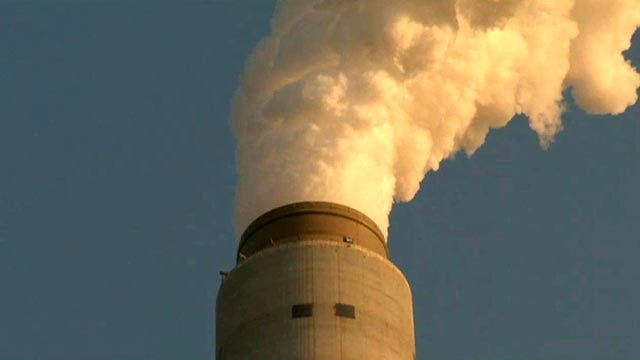As a part of its controversial proposed rule to limit carbon emissions from existing power plants, the EPA held simultaneous public comment sessions in Washington, Atlanta and Denver Tuesday. The comments, designed to help shape the formulation of the final rule, may have complicated that task, given the often diametrically opposed opinions expressed.
At the Washington event, one of the speakers, Sen. Ed Markey, D-Mass., told the panel, "The planet is running a fever and there are no emergency rooms."
His admonition to address the urgent climate crisis contrasted with satellite data that shows no global surface warming for 17 years and 10 months. That, in turn, is at odds with NASA's findings that 2013 tied as the seventh warmest year since 1880.
Also at the Washington event, Anne Burchard of the Sierra Club warned climate change-induced extreme weather was already upon us. "We no longer need storms or hurricanes to produce flooding - it is becoming an everyday occurrence, "she said.
Contradicting her remark was NOAA data that shows tornado intensity and frequency well below normal, and other records that show the US in a hurricane drought.
The proposed EPA rule will require all power plants to limit carbon to 1,000 pounds per megawatt-hour of electricity - easily achieved with natural gas but unobtainable by present day coal plants.
Skeptics warned Tuesday the rule will kill domestic coal use, increase energy prices and force businesses to move abroad.
"Forcing energy intensive manufacturers off shore because of high energy costs accomplishes nothing environmentally and damages the domestic economy and employment, said Paul Cicio of Industrial Energy Consumers of America.
At the Denver hearing, Katharine McCormick of the Natural Resources Defense Council and a resident of Iowa, pointed to her state’s broad use of wind turbines to refute that point. "It's worth noting," she said, "that Iowa has some of cheapest electricity in the nation."
Both opponents and proponents of the rule touted carbon-conscious California as a case study for their cause.
Fred Palmer, representing Peabody Energy, a coal company,told the Washington panel, "Efficiency in California, which has been lauded by many, has been achieved by destruction with large manufacturing fleeing the state."
Rep. Linda Sanchez, D-Calif., told the panel that Palmer’s facts were wrong. "There's been erroneous testimony," she said. "California's electricity bills are 25 percent below average."
In fact, according to the Energy Information Administration, when all sectors -- residential, commercial, industrial and transportation -- are taken together, California's average of 13.60 cents per kilowatt hour is higher than the national average of 10.21 cents per kilowatt hour.
The back and forth will continue until Oct 16, the deadline for written comments. The EPA will release the final rule next year.













































